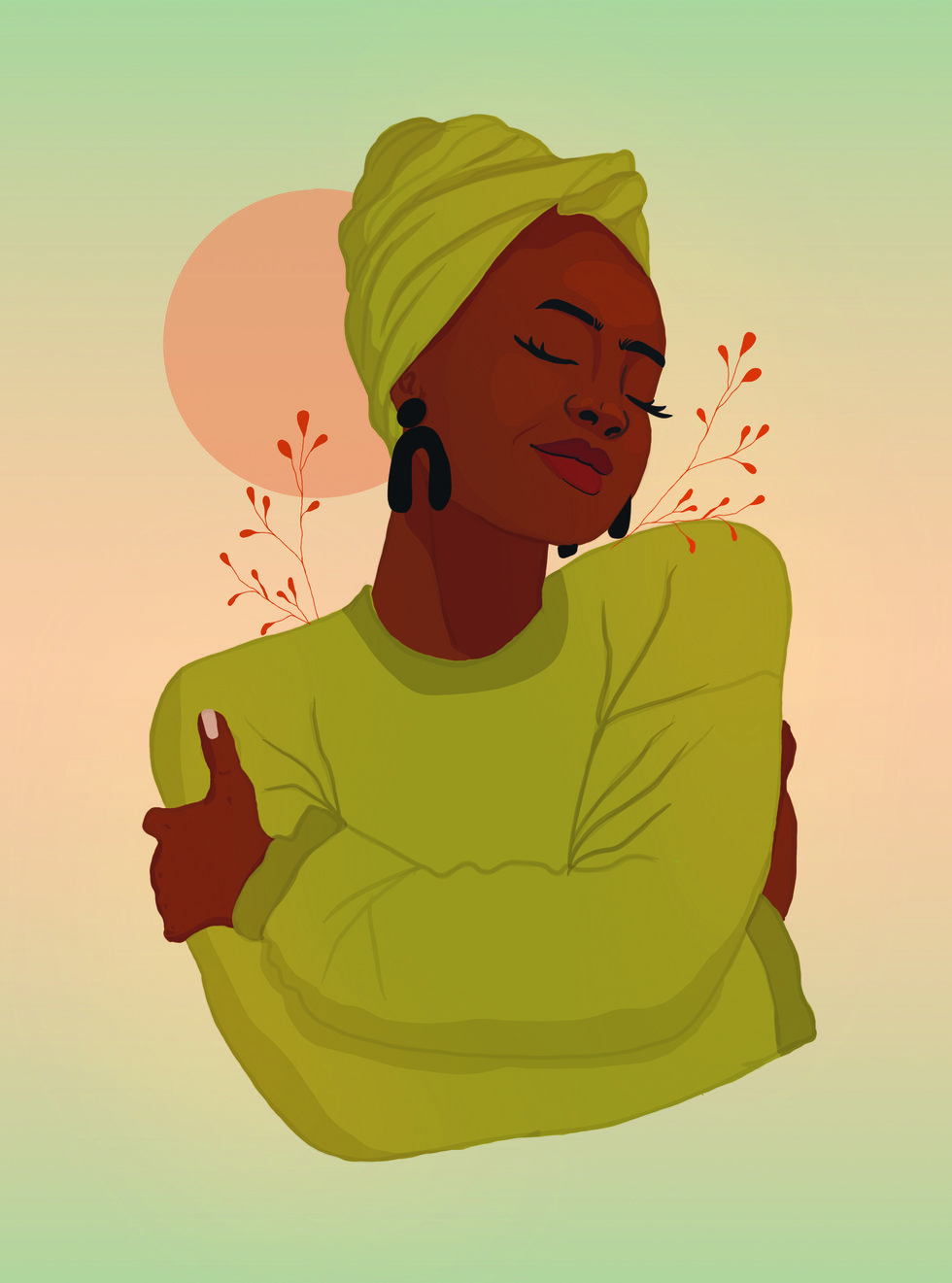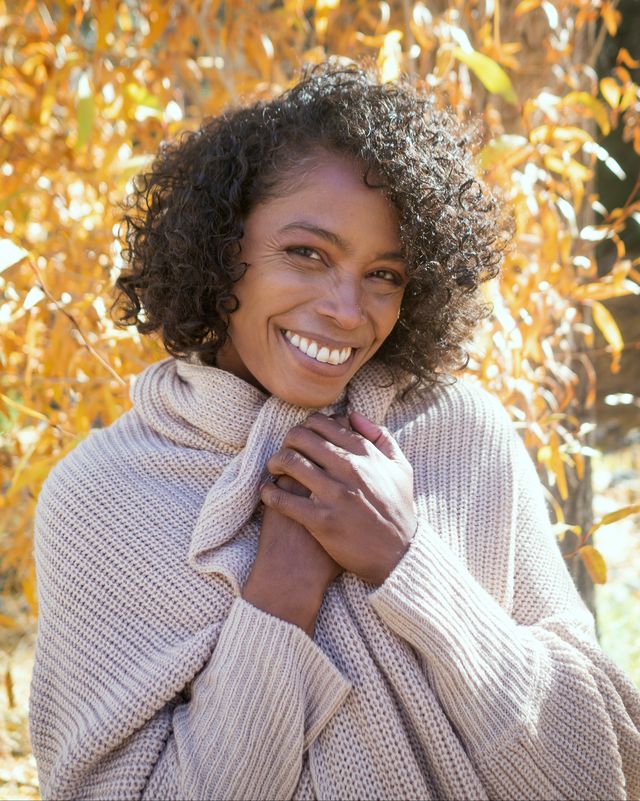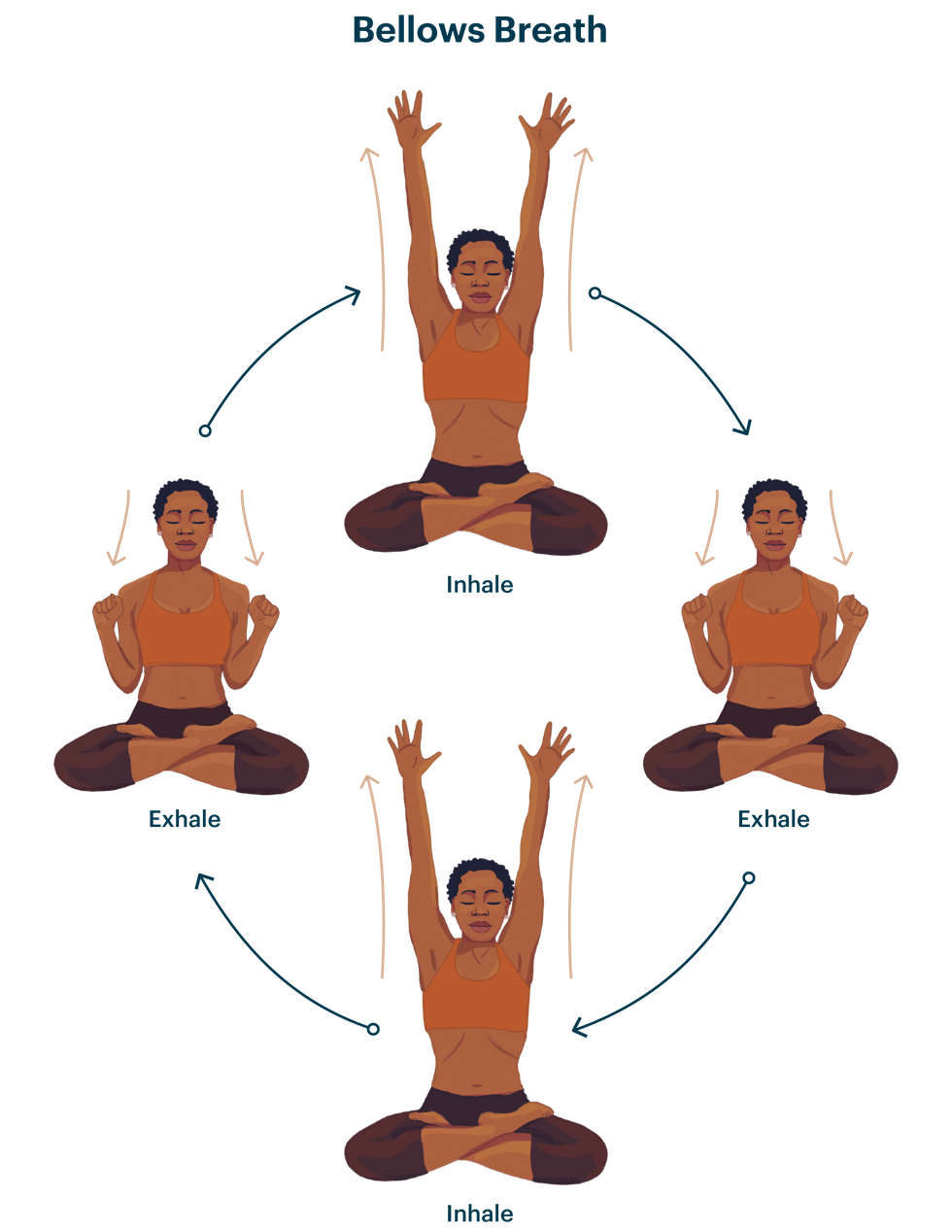How Breathwork Helped a Black Woman in Corporate America

[ad_1]
Zee Clarke is acutely aware of something many Black people in the United States have learned the hard way: that while your title and alma mater may look perfect on paper, they can’t shield you from microaggressions. She holds degrees from both Harvard College and Harvard Business School and has managed teams at Silicon Valley start-ups and Fortune 500 companies for decades. But she has also struggled with the isolation of being the only Black female in a sea of hundreds of employees, and weathered high-stakes work demands that sent her stress levels off the charts.
Ring a bell? Whether your manager’s racial comment catches you off guard or the police are humiliating you in a grocery store parking lot—both have happened to Clarke—you need to find ways to protect your body and mind. She relies on breathwork, a practice she learned in India in 2017 after quitting her corporate job.
Today, the New Mexico resident and mindfulness and breathwork teacher is the CEO of Reclaiming Flow, an organization that teaches workshops for people of color on topics like managing microaggressions, impostor syndrome, and stress management. She has also written the book Black People Breathe, a guide of illustrated breathwork exercises for people of color dealing with the troubling impacts of racism (including hearing about events in the news) and for allies who want to provide support.
More From Oprah Daily

We asked Clarke how intentional breathing transformed her life, and how anyone can benefit.
You were a corporate powerhouse. What made you leave it all and eventually start your own business and write this book? If I were to sum it up in one word, burnout. I was usually the only Black person wherever I was, especially when I rose in the ranks. And microaggressions are real. People would say things that would trigger me significantly. And I felt like as the only Black person, I needed to represent the entire Black race. I felt like I needed to work twice as hard just to be treated like everyone else. I was working nights and weekends, which ultimately started to affect my physical and mental health. My doctors were like, “Something’s got to change, especially around your stress levels.” So that’s when I took it to heart—when it started to put my health at risk. And that’s when I quit and went to India, where I discovered breathwork.
What made you think, This is my calling? I was training to be a yoga teacher, and a breathwork intensive was part of the training. What I love about it is that you can do it anytime, anywhere. You don’t need to take a class or make an appointment. And it’s so helpful in the moment when you’re feeling extreme emotions. And also, it’s free. I thought, Black people need this. There’s a lot of media around Black people and therapy—I’m a strong believer in it but also know that it’s expensive. I’m not saying that breathwork is a replacement for therapy, but I love that anyone can do it.
You write about so many harrowing moments, like being the only Black woman out of more than 500 employees while working in enterprise sales. Could you tell us more and walk us through the breathwork you practiced for relief? People would say offensive things like “When I see you, I don’t see color.” One boss pulled me aside during my first week and said, “I just want you to know that I didn’t hire you because you’re Black.” That never crossed my mind—until he brought it up.
It’s so easy to spit out exactly what you’re thinking when people trigger you. But you might get fired. It might ruin your personal brand at work, your interpersonal relationships, and your ability to collaborate. So I’ve found the extra-long exhalation to be extremely powerful because they don’t know that you’re doing it. Exhaling stimulates your parasympathetic nervous system.
Another thing that happens a lot? I teach workshops to leading companies around the country and ask the Black employees, “Which of these microaggressions have you experienced?” At one of them—a big company whose products people use every day—100 percent of the people said they’d experienced this: people ignoring their comment, and then someone else saying the exact same thing in the meeting and being applauded for it.
In those situations, you can do an extra-long exhalation or a belly breath. And it’s not just at work, but I use that one with the police as well—anytime you’re triggered. During a belly breath, you inhale and you allow your belly to expand like a balloon, then exhale [and your] belly comes toward your spine. It’s counterintuitive because we’re taught in American society to suck it in and look skinny. But when you inhale and you actually make your belly big, it stimulates that parasympathetic nervous system—that rest-and-digest nervous system—allowing you to respond from your highest self. It’s a pause between stimulus and response.
In your book, you describe an incident you had with police at a grocery store. Can you share a little about that? I spent $220 at a grocery store while on a cross-country road trip. I was in the parking lot putting the groceries in my car—which was kind of full because I was on a camping trip through national parks—when I heard police sirens. That’s when they came: police cars, the men looking very aggressive and scary. They were also very tall. I’m five two and a half, so it’s very intimidating when large men are yelling at you.
They were like, “Ma’am, where’s the groceries? Where are the groceries? Did you purchase those groceries?” And I was like, “Yes, here’s the receipt.” Then I walked them through every vegetable on the receipt, and they insisted that I stole deli meat—but I’m a vegan. They went through all the items on the receipt and all the groceries in the bag but weren’t satisfied and didn’t believe me.
So I grew more frustrated and angry inside but was also scared because I didn’t know what they were going to do to me. Then they started searching all the bags in my car: my clothes, my sleeping bag… Everything was all over the concrete, and they still didn’t believe me. I was so scared, but also so pissed. You hear stories about when people say what they think to the police, and the next thing you know…and even Black women, right? There are a lot of stories about Black men, but in the last few years, there have been more Black women. You don’t know what they’re going to do to you.
So I took a deep belly breath at that moment. That allowed me to calm down so I could put on my best code-switching voice and try to make nice conversation and be as sweet and nonthreatening as possible.
What’s the most important thing you hope readers take away from this book? I have two, depending on the audience. For Black people and other people of color: We have the power to control how we’re feeling inside, regardless of what’s going on around us. For allies and aspiring ones: I want them to be aware of the realities that happen in this country so they will be inspired to be better, to speak up when they see these things happening, and help amplify Black voices, because we’re often invisible.
Is there one more breathing technique you’d like to share with our readers? A good one for when you’re tired is the bellows breath. Have loose fists at your shoulders. As you inhale, shoot your arms up [with] a loud, audible inhalation. Then you bring your arms down as you exhale. It’s fast. It goes like this: inhale, exhale; inhale, exhale; inhale, exhale. Do that for a few rounds. I suggest starting with 10, then increasing. I teach these in my workshops to Black and brown employees across the country.
As Black people, we often do more work than others. We get extra responsibilities. My jobs weren’t specifically diversity, equity, and inclusion, but I was in all these HR meetings that weren’t part of my job. I would say yes to all of it, which was exhausting. That’s when the bellows breath can help you get some energy, because there’s only so much coffee you can drink in a day.
Clarke’s new digital course, Breathing Through Microaggressions & Racism, goes live in June.
Any content published by Oprah Daily is for informational purposes only and does not constitute medical advice, diagnosis, or treatment. It should not be regarded as a substitute for professional guidance from your healthcare provider.
Robert Litman hosts our “The Life You Want” Class on the art and science of breathwork. You will come away with a tool kit of simple breathing techniques to help with stress, anxiety, sleep, asthma, and more. Become an Oprah Daily Insider now to get access to this conversation and the full “The Life You Want” Class library.
Assistant Editor
Jane Burnett is an Assistant Editor at Oprah Daily, where she writes a variety of lifestyle content for the editorial team. She’s a journalist with a pop culture sweet tooth—when she isn’t catching up on celebrity news, she’s usually listening to a podcast! Jane was previously an on-air reporter in local news, and worked at Thrive Global, Ladders News, and Reuters. She also interned at CNBC through the Emma Bowen Foundation, and is a member of the National Association of Black Journalists (NABJ).
[ad_2]
Source link




